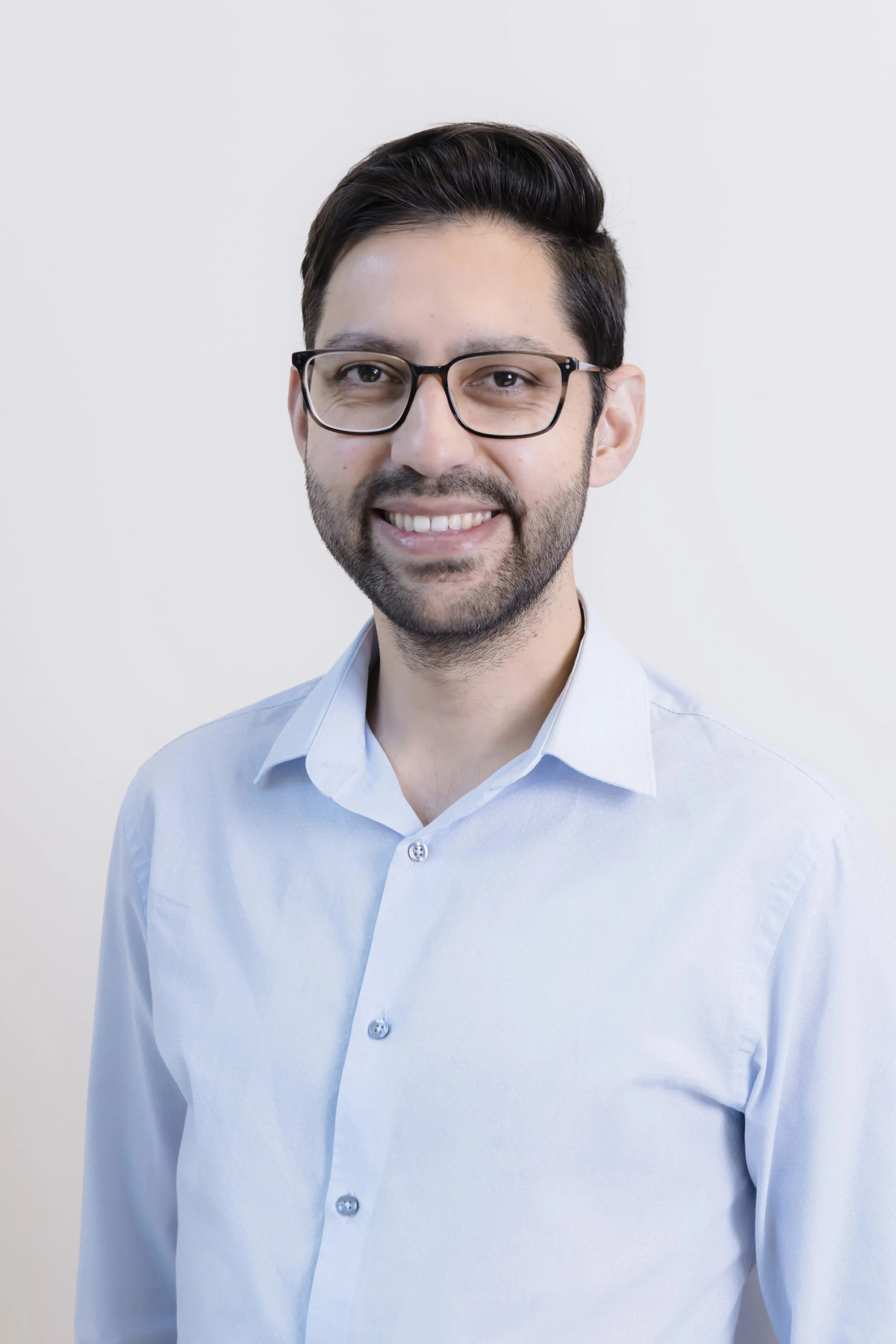Our Team
-
Vi grew up in Canberra, Australia, did his undergraduate degree at the University of Melbourne, followed by PhD and postdoctoral work with Ron Laskey, FRS and CBE, and Ashok Venkitaraman at the University of Cambridge, UK (2003-2016). He started his laboratory at the Peter MacCallum Cancer Centre in Melbourne, Australia in mid-2016 and moved to the Walter and Eliza Hall Institute of Medical Research in November 2024 as a Professor and Nossal Leadership Fellow. He holds a joint appointment with the Department of Biochemistry and Pharmacology at the University of Melbourne. He is a veski Innovation Fellow and the inaugural Moderna Australia Fellow.
-
William (Billy) Hamilton is a Senior Research Officer in the Wickramasinghe lab. His work has a strong focus on implementing novel biochemical techniques to address fundamental questions pertaining to the molecular underpinnings of cell identity. He did his undergraduate studies at N.U.I. Galway followed by an MSc at Baylor College of Medicine, Tx. U.S.A. From here he undertook his PhD work in the labs of Profs. Mike Tyers and Tilo Kunath looking at how mitogenic signalling affects lineage specification in mouse development. Following his PhD studies, he moved to Copenhagen, Denmark, to continue his postdoctoral work in the lab of Prof. Joshua Brickman and held a joint position at the Danish Stem Cell Centre, Danstem (now ReNew Global), and the Centre for Stem Cell Decision Making (Stemphys) at the Niels Bohr Institute. Dr. Hamilton’s work in the Wickramasinghe lab aims to understand on how RNA export regulates embryonic totipotency and cancers which reactivate embryonic gene expression networks. Dr. Hamilton was the recipient of a 2024 NH&MRC Ideas Grant to expand this work and is eager to hear from enthusiastic students who may be interested in working at the intersection of Developmental and Cancer biology.
-
Kirstyn Carey is a post-doctoral researcher who undertook PhD studies in the Department of Biochemistry and Molecular Biology at Monash University exploring the molecular pathway driving Glucocorticoid Induced Cell Death (GICD) in mouse thymocytes. Following this she worked in the laboratory co-headed by Professor Neil Watkins and Dr Jason Cain at the Hudson Institute examining how loss of “Hypermethylated in Cancer 1” (HIC1) gene activity promotes cancer initiation and progression.
Her current research focuses on understanding the molecular basis of selective mRNA processing and export from the nucleus, how deregulation of these processes contributes to human cancer and the potential for identifying opportunities for therapeutic intervention. She is currently working on a number of projects to develop small molecule inhibitors targeting mRNA export. Comprehensive characterisation of these small molecule inhibitors will facilitate our understanding of mRNA processing and export and will hopefully lead to development of pharmacologically relevant compounds which can eventually advance to clinical trials as cancer therapeutics.
-
Zhen is a Research Officer in the Wickramasinghe Lab with a keen interest in fundamental cell biology and gene regulation. She began her research journey in A/Prof Elizabeth Hinde’s lab at the University of Melbourne, where she developed fluorescence microscopy tools to study chromatin organisation and epigenetic regulation. She later pursued a PhD under Dr Jacki Heraud-Farlow and Prof Carl Walkley, exploring a class of RNA that, when misregulated, can contribute to autoimmune responses and disrupt energy homeostasis during development.
Her growing interest in RNA biology led her to investigate circular RNAs (circRNAs) in the Wickramasinghe Lab. She explores key questions about circRNA biogenesis and export, particularly the role of RNA regulatory proteins like IGF2BP1 in their lifecycle. Through this work, she hopes to provide insights that may support future RNA-based therapies.
-
Emma gained her PhD from the University of Durham. Her PhD project was aimed at the identification and validation of carbamates which are the post-translational modification of carbon dioxide onto neutral amine sites. Following a cell line proteomics screen, two proteins targets were selected for assessing the biological relevance of carbamylation on downstream biological pathways. Emma was primarily based at the Biosciences Department of Durham University but also worked in the AstraZeneca high throughput screening department with the aim of translating carbamylation research into a pharmaceutical setting working with degraders.
Currently, Emma is working within the exteRNA team on the development of small molecule inhibitors that target RNA processing pathways. A key focus has been determining the mechanism of action for lead targets to optimise therapeutic potential and guide patient population selection.
-
Andrew Das is a Senior Research Officer in the Wickramasinghe lab, where he is investigating mechanisms underlying the pathology of spliceosomal mutations in myelodysplastic syndromes.
He completed a combined MBChB/PhD degree at the University of Otago, gaining expertise in biochemistry and pathology. His thesis explored how susceptible proteins are damaged by mitochondrial oxidants and how this impacts a rate limiting step in the synthesis of critical nucleotides. During his postdoctoral work, his research interests expanded to include how metabolism and epigenetics intersect to determine cell phenotype. At the Centre for Redox Biology and Medicine (Christchurch, NZ), he investigated the potential role of ascorbate as an epigenetic therapeutic in specific subtypes of acute myeloid leukaemia. He also explored whether oxidants produced by immune cells can regulate the epigenetic identity of neighbouring cells.
He was subsequently awarded a John Gavin Postdoctoral Fellowship to continue his training at the Peter MacCallum Cancer Centre and Murdoch Children's Research Institute in Melbourne. Across several different projects, he developed proficiency in stem cell differentiation, single molecule tracking, and the design and analysis of CRISPR screens for probing cell fate decisions. He is now leveraging this broad range of expertise to understand what goes wrong in myelodysplastic syndromes where splicing is perturbed.
-
Tan Nguyen is a postdoctoral researcher with expertise in RNA biology and mechanisms of cell-to-cell communication. He completed his PhD at the Walter and Eliza Hall Institute of Medical Research, where he investigated innate immune responses to viral double-stranded RNA under the supervision of A/Prof Ken Pang and Professor Seth Masters.
He then undertook postdoctoral training at the University of California, San Francisco (UCSF) in the laboratory of Professor Jayanta Debnath. There, his research focused on how secretory autophagy and extracellular vesicle pathways selectively package and release RNA and proteins, with implications for cancer and neurodegenerative disease.
Tan is now a Senior Research Officer at exteRNA, a biotechnology company spun out of the Wickramasinghe Lab. At exteRNA, he applies his expertise in RNA biology to advance the development of small molecule therapeutics that target mRNA export, contributing to the company’s mission of pioneering novel treatments for cancer.
-
Former Lab Members
Toby Williams, PhD student (2017-2022), now postdoctoral fellow (Jeff Chao Lab), Freiderich Miescher Institute, Basel, Switzerland
Linh Ngo, Research Assistant (2016-2024)






